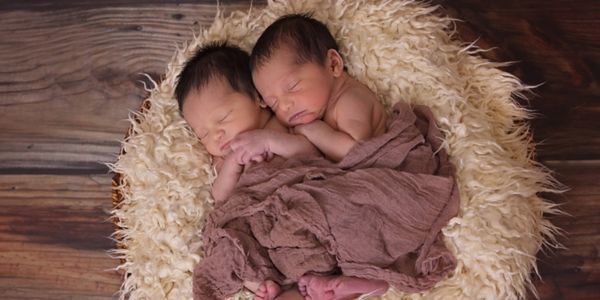

I love weddings. I’m also a little (ok a lot) fascinated by the royals.
I’m the daughter of a white British woman (born in Maylasia, but that’s a story for another day) and a Nigerian-born black man. My husband is (very) white and we have 2 daughters, the eldest of whom loves Disney princesses to an almost terrifying degree. Perhaps these days, on their own, none of these things are remarkable or even surprising but together they contribute to why I believe Meghan Markle’s marriage to Prince Harry is a big deal.
Before going any further, I should make the point that my analysis of Harry & Meghan’s relationship is pretty much based on that cute engagement interview they gave (sets quite the high bar for a roast chicken dinner doesn’t he, our Harry?!) and the footage of the time they visited Belfast last month aka “the day I almost met Harry & Meg” (also a story for another time). I’m also a fan of Suits so there may well be some deeply unfounded assumptions of what Meghan is like in the real world based on this show. Apart from a short pen-pal exchange with the Queen when I was about eight years old (trueish story), I regretfully have no connection with the Royal family whatsoever.
So, having established that I’m no expert and possibly verging on celebrity stalker, if you still think you’ll bother to read on, let me continue.
My parents married in 1981 in Manchester and despite what you may think, this was still an unusual and in some cases, frowned upon union. However, I was born a few years later and aside from an ongoing personal battle with Afro hair that exists to this day, I have no recollection of negative discrimination because of the colour of my skin. I appreciate that not everyone has such a positive experience of inclusivity even now in our ‘multi-cultural’ society. So I’m extremely thankful that my experience as a mixed race child in a predominately white society was a happy one.
Looking back though, I know that many of the personal insecurities about my physical appearance came from the fact that white girls with straight blonde hair were considered the norm (generalisation but you get what I mean). Obviously, over time there’s been a gradual shift towards recognising and promoting the influential contribution of black women and others from minority ethic backgrounds, on a global scale: black female politicians, black supermodels, a black First Lady. Yet, even as recently as 2015 Nadiya Hussain’s Great British Bake Off win was highlighted as being a great feat not because of her skill with a piping bag but because of her background and, although not explicitly stated, ultimately because of the colour of her skin.
Don’t get me wrong, I’m a huge supporter of promoting positive role models for kids as a way of encouraging children and young people to develop confidence and self-esteem but why can’t it be because these women are just good at their jobs?! Why can’t Michelle Obama be an inspiration to all kids no matter their gender or race? Why, despite Disney’s introduction of Princess Tiana (no I don’t remember her either), Moana, heck even the streroytypical feisty redhead, Merida, why do Elsa and her platinum locks remain the most enviable of all the princesses?
Perhaps there’s some deep seated racism or thinly-veiled white supremacy lingering in the small minds of some but more than likely it’s to do with the extortionate amount of money invested in creating endless volumes of Frozen-themed tat or spreading vicious rumours of a sequel and then taking a thousand years to produce it.
Whatever the psychology behind it, the fact is Frozen is “normal” and so 5 year-old-child logic dictates that this is someone or something to aspire to. There are parents across the land who find themselves singing Let it Go in the shower or absent mindedly asking their co-workers if they’d like to build a snowman because, like it or not, Queen Elsa and friends are part of the furniture. And so, in a UK primary school in 2018, my daughter continues to be asked by white friends why her skin is “different”. Like it or not, regardless of how we speak to our children about love and respect for people that don’t look the same as us, they are hugely influenced by what goes on around them in the media and the subliminal messages from Walt Disney and co about what is “normal.”
This is where Harry and Meghan come in (finally she’s getting to the point – cue relieved sighs). Why does their wedding matter? Quite simply, it doesn’t.
It doesn’t matter that Meghan is American, older than Harry, divorced and has darker skin than him. It doesn’t matter that Harry has red hair, a ridiculous amount of money and chooses to spend his spare time riding on a horse wielding a stick.
It is a big deal though. Because once the dust settles on the fact that the sixth in line to the British throne is married to a mixed race woman, the images of them will, for the first time in forever, become “normal”. When my daughters see photos of Meghan alongside Kate on the front of newspapers, in magazines and on hideous china tea sets, they will see anyone can be a princess but more than that, they’ll also realise that love & respect runs much deeper than the surface of the skin. They see it between their own parents and grandparents but perhaps they’ll start to see it’s also true in the world around them – that what really matters is that skin colour doesn’t.
And that’s a huge deal.
Despite them forgetting to send my invite, I wish the happy couple all the best. Not that I need an excuse for a party, but there will be royal celebrations in our household for sure!



.png)






.jpg)




